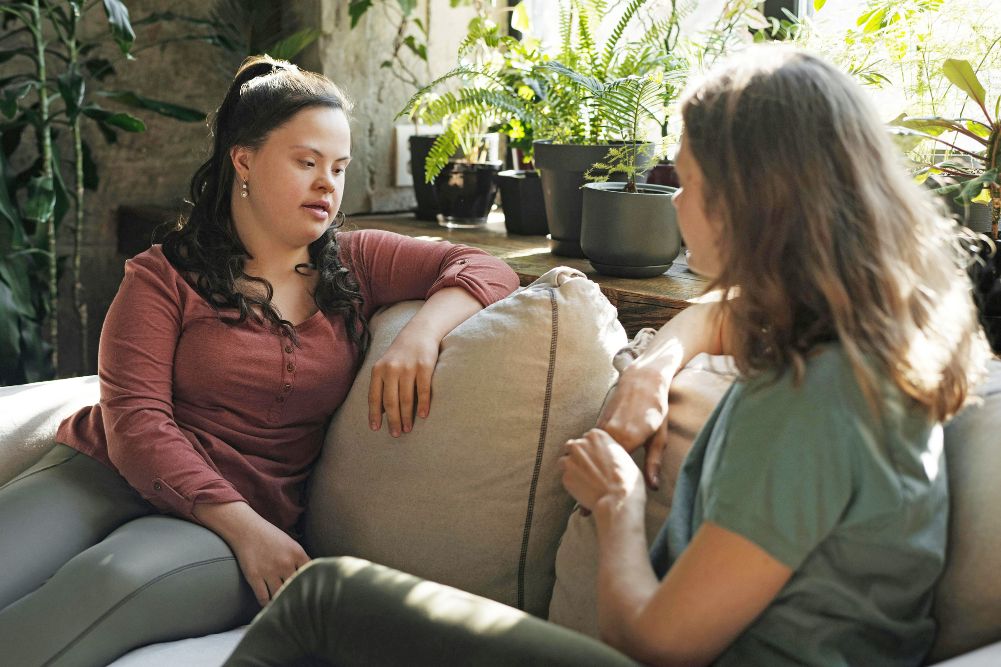The game of love
Whether it’s come from your mother, uncle or grandparent, you’ve probably heard the old adage “things were simpler in my day.” It may be pushing it to apply this statement to all areas of modern life, but the dating scene has certainly become more complicated.
As little as 30 years ago, couples were marrying in their early twenties and having children not long afterwards. Over the past few decades, there has been a shift in lifestyle that has affected the way we look for love, as well as what we’re looking for. On the positive side, we’re looking for love without the economic, reproductive and social constraints of the past. Men and women both pursue and attain successful careers and financial security. Nowadays, being single in your thirties is not unusual and couples are having children later on in life. Although the biological clock still ticks (more loudly for women), it seems that we’re happy to bide our time and wait for that perfect partner.
This equality and freedom however, comes at a price and does not automatically lead to success and happiness on an emotional, intimate and personal front. The on-demand nature of modern culture means many people are spending longer and longer at work. Spare time is limited and fitting in friends, family, health and wellbeing, and some essential ‘me time’ leaves very little time for the quest for love. So the changing nature of society is filtering through to the pursuit of love and changing the rules of love as well.
Great expectations
The time-poor culture for instance, has taken its toll on the dating scene. We’ve simply become too busy for games and ambiguity. Joanne, a successful single woman in her early thirties, is typical of today’s ‘daters’ in that she knows what she wants to get out of a date before it’s even begun. For Joanne, participating in the dating scene has an ultimate goal – a long-term loving relationship. “I don’t have time to meet that many people so if there’s no connection, if I don’t see the possibility of a relationship with that person in the future, there’s little point in seeing them again. The majority of single people I know are looking for long-term love so what’s the point in pretending otherwise.”
Like Joanne and her peers, a growing number of people are openly expressing the desire for long-term intimate relationships, and actively seeking someone with whom to share their lives. Expectations are getting higher, or at least clearer. Physical attraction is desirable, essential even, but for most people a random hook up simply won’t cut it. People are searching for depth of connection and emotional intimacy; for someone with whom to grow emotionally, sexually and spiritually.
Dating and spirituality
Spirituality and dating may sound like unusual bedfellows but the search for authenticity in dating naturally brings the two together. Spirituality doesn’t have to be about religion. Whether you indulge in meditation, use yoga to centre your body and mind after a busy day, or commune with a higher power on a regular basis, if spirituality is important to you, it’s crucial that you are open and honest with your date from the beginning. As Kate, a 29-year-old account executive explains, “I would consider dating someone with different political and even religious beliefs, as long as they weren’t extreme, but if a date scoffs at my practising meditation, I think that would be a deal breaker. It’s important to me and I expect my partner to respect that, even if they don’t share my passion for it.”
It works the other way too – an important part of being spiritual is accepting people for who they are. Be graceful about your date’s beliefs and understand that what you see is what you get. If you’re spending those first dates thinking he’d be perfect if he’d just change this or that, then it’s probably best to move on. Just as you can’t change who you are for someone else, you can’t expect him or her to change to fit your personal ‘perfection’ mould.
Conversations about spirituality can be awkward and not everyone wants to broach the subject on a first, or even a fourth date. This could lead to be a lot of time, effort and money wasted if it is essential that your future partner share your spiritual beliefs. There a have long been dating sites for those with particular religious affiliations, but there are now an increasing number of online dating sites dedicated to the spiritual you. For instance, Astral Hearts in the US specifies that its members are interested in “metaphysical topics, spirituality, and open mind, and a desire for similar interests in a life partner”. Astropoint.com promises to find you a partner based on astrological combinations.
Love online
For many Australians, our real lives are now inseparable from our online lives. We do our banking, shopping, playing and planning via the internet, so why not look for love there too? The phenomenon of internet dating in general has exploded in the past decade. According to a recent Nielsen poll one in four adults have used the internet to find a partner and another 38 per cent are considering using online dating. (For more on online dating see the article Modern Love in this publication.)
So what’s the appeal? Those who are pro looking for love online believe it’s simply a convenient and practical way to meet people. “Putting yourself out there on the dating scene can be emotionally risky,” explains Guy, a 31-year-old lawyer. “Online you can be as picky as you like and there’s more chance that you’ll meet someone you have something in common with rather than a booze-fuelled encounter in a bar.”
On the flip side, cynics say that although the virtual world is an ideal place to experience all the heady feelings of romance, there’s none of the messiness of real life. Users choose the best photo and portray themselves in any way they want. The internet provides a quick, cheap, and logical solution to the desire and yearning for intimacy, but the sense of intimacy it creates is often false because it’s based on half-truths.
Joanne also points out that some can feel awkward about the very public nature of online ‘personal ads’. “I’m not really comfortable putting my photo and a public profile about me trying to sell myself that the rest of the world has access to.”
Luck of the draw?
What about those who have tried all kinds of dating but who just seem to be unlucky in love? Emma a thirty-something from Perth, was excited about a blind date her married friends were setting her up with. “This guy sounded perfect – single, a good job, handsome. I wondered why some gorgeous girl hadn’t snapped him up. We all went out for dinner and I immediately realised that this wasn’t going to work out. He lived up to all the hype. Just one problem – he’s blatantly gay. After a string of failed relationships, I’m beginning to think that, when it comes to love, I’m just out of luck!”
Richard Wiseman, a psychologist and author, has done extensive studies on people who are ‘lucky’ and came to the conclusion that lucky people generate their own good fortune via four basic principles: they are skilled at creating and noticing chance opportunities; make lucky decisions by listening to their intuition; create self-fulfilling prophesies via positive expectations; and adopt a resilient attitude that transforms bad luck into good.
Let’s look at principle number three – creating self-fulfilling prophesies via positive expectations. In her best-selling book You Can Heal Your Life, Louise Hay talks about looking for love and why, when we’re searching for love, it never comes. She believes that until we learn to love ourselves, we cannot attract what we want into our lives. Hay suggests writing down a list of qualities you are looking for in a relationship and then, rather than searching for them in someone else, develop them in yourself in order to attract a person who has them. For Hay, successful dating is about self love. “Love is never outside ourselves,” she says. Rather “love is within us.” What keeps loving relationships away is a lack of love for ourselves, manifested as things like criticism, feelings of unworthiness, a fear of intimacy, a belief that you are unlovable, low self esteem. When you feel good about yourself, luck, and love, seem to show up for the ride. As Hay says, “Loving ourselves is the essential non-negotiable ingredient for every soulful journey in finding our mate.’
The ‘in-love’ phenomenon
So you’ve worked on self love and you think you may have met “the one”. You’ve been dating for a while, he ticks all the boxes and you’re completely, totally head over heels in love. You think about him every minute of the day – you can’t concentrate on work, food, friends or any of that irrelevant stuff. You’re riding high on the ‘in-love’ obsession.
The late Dr Dorothy Tennov, psychologist and author of Love and Limerence, conducted a number of long-range studies on the ‘in-love’ phenomenon. After studying scores of couples, she concluded that the average life span of a romantic obsession is two years – a rather sobering statistic for those just starting out on their romantic life together.
It’s true that when you’re in it, the in love experience feels amazing. When you are at what you feel is the pinnacle of life’s happiness, your only desire is to stay there. The in-love phenomenon does not focus on your own growth nor on the growth and development of the other person. Rather it gives you the sense that you have arrived and that you do not need to grow further. Certainly your loved one does not need to grow because he or she is perfect.
However, after a while you realise that your partner isn’t perfect. The bills still need paying, dinner still needs to be cooked, and he still insists on leaving his wet towel on the bed. At some point, it is inevitable that you will come down from the high of the in-love obsession.
However, the need to be loved doesn’t go away even when the in-love feeling fades – it is fundamental to human nature and is at the core of emotional desire. Don’t despair – this is the start of a new love phase. All it takes is a little hard work, and you can maintain and even grow your love for your partner.
The language of love
The good news for those in long-term relationships is that love can be kept alive after the in love phase has passed. In his book The Five Love Languages, marriage counsellor Gary Chapman introduces five emotional love languages. He believes that it is important not just to show love to your partner, it is essential that it is the right kind of love, given in a form that best meets your partners wants and needs.
The way you would like to be shown love might not be the way your partner does. “The language of your spouse may be as different as Chinese and English”, says Chapman. “We must be willing to learn out spouse’s primary love language if we are to be effective communicators of love.” Being willing to learn how to be loving and keeping your partner’s highest good at heart can keep love alive. You may feel most loved when your partner gives you gifts. He may feel most loved when you affirm him with praising words. “When an action doesn’t come naturally to you,” says Chapman, “it is a greater expression of love. Love is something you do for someone else, not something you do for yourself.”
So how do you set foot on the path to sustainable love in a long-term relationship?
Firstly, it is important to give your partner time. Love begins in attention. When you are in the dating and in-love phases, your partner gets most, if not all of your attention. However, the modern world is a busy place and slowly, distractions such as work, friends, kids and family interrupt your attention and deflect it away from your partner.
Nurture your relationship
One of the most important things you can do is to cherish your relationship with quality time. After all, careers, happy children, grooming and meals don’t just happen by themselves, so why should great relationships? There is a misconception that good relationships should just happen effortlessly but when it comes to putting quality time into a relationship, changing a few simple habits can transform a relationship. Try and eat dinner together (not in from of the TV) a few times a week, meet for a lunch date or plan a weekend away. If it sounds like a chore, you just need to change your perspective and make it a hobby – after all, you’ll get a lot out of making the effort to make your partner happy – what you give, you also receive.
Rachel has been married to her husband for six years. Her greatest complaint is “we never talk anymore.” Rachel isn’t talking about chatting about whose turn it is to take the kids to school or what’s for dinner. True communication deepens your connection and is essential to sustaining love. When your partner talks, it is important to really listen. Out of everyone in the world they need to know that you are the one that genuinely cares the most about what they have to say. In turn, it is essential to speak honestly and from the heart. Open up to your partner and give them the chance to really understand you. Consciously speaking with love and compassion also means you are less likely to say something hurtful or invalidating. If you need to, place your hand over your heart as you speak to keep you connected to a place of love, especially useful if the conversation becomes heated.
Speaking of heat, in a time-poor culture, physical intimacy can be the first thing to fall by the wayside. However, the passion you had at the start of the relationship can be reignited with a little effort. It was you two that made sparks fly in the first place – no one else lit the fuse on your personal fireworks. Best of all, you no longer have to waste time worrying about whether your partner finds you attractive or loves you back – that bit is already a given. Physical intimacy isn’t all about sex either; simply making time to kiss your partner before leaving the house and when you return from a busy day takes seconds but can mean the world. Encourage each other to love the body you have and build compliments into your daily routine – they’ll soon become second nature.
Back to the beginning
Remember when you were first dating? Part of those regular fun outings was about building your identity as a couple. When you’ve been together for a long time, and especially if you have a family, you lose that sense of identity. So start dating again. Ditch the dull routine and take turns to plan something the two of you have never done before. Go roller-skating, take a cooking course, go feed the ducks or hire bikes. Just do whatever it takes to get you out of your regular routine. A date is a great way to remember why you fell in love in the first place.
As much as it is important to spend quality time together, it’s also important to give each other breathing space. “The best advice I can give anyone about marriage is to be selfish,” says Dina, who’s been married for five years. “Not all the time, but occasionally, give yourself permission to do something that’s just for you. I make sure I go to yoga once a week. It’s my time and I think it makes me a better wife and mum.” Being selfish in a relationship is actually about self love. The more you feel loved, no matter where the love is coming from, the more likely you are to be able to reach out and give love to your partner.
Both finding love and maintaining long-term love take work, courage, faith and persistence. As good as it is, the ‘in-love’ feeling won’t go on forever, but there’s no reason that true love cannot last a lifetime. Love is a choice. We all have good and bad days but sticking with it, putting in the hard yards and working through difficulties and conflict will pave the way for longevity. Discovering how to bring out the best in each other bring rewards of harmony, high self-esteem and security.
Whether you are about to go out on a first date or you’ve been married for 50 years, remember that your first step is to focus on yourself. Be kind, generous and loving –in short, be what it is you’re seeking. Every relationship is a reflection of the person that you are and the way you feel about yourself. Whether you’re looking for love or looking to sustain it, love and cherish yourself and you’ll give yourself the very best chance of winning in the game of love.
(Names have been changed)
Rebecca Cavalôt is a Melbourne-based writer and editor. She can be contacted through her website www.rcavalot.squarespace.com








